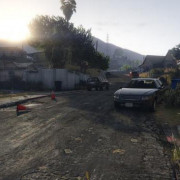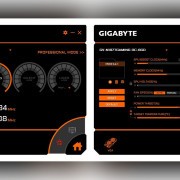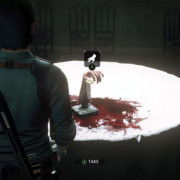Советы и рекомендации по работе с unity3d
Содержание:
- Вступление
- Создание префабов
- Вставка префабов
- Inserting prefabs
- Creating prefabs
- Current Structures Include:
- Текстура Skip tool
- FEATURES
- Prefab Mod Download Links:
- Как использовать префаб в игре
- Prefab Mode
- How to install Prefab Mod
- Prefab Mod Download Links
- Что такое префаб?
- Предварительная сборка
- The Skip tool texture
Вступление
Начнем с пересказа основ префабов в Unity. Фундаментально, ассеты префабов в Unity — это как шаблоны игровых объектов и их Child-ов. Вы можете создавать множество копий префабов на сцене. Если ассет был изменен, то все размещенные префабы на сцене также будут соответственно обновлены.
Сейчас процесс редактирования префабов выглядит не самым приятным образом. Когда мы хотим изменить ассет префаба, мы должны разместить его на сцене, изменить, применить изменения, и после всего этого не забыть удалить его со сцены. Другая проблема с существующей системой префабов заключается в кнопке применения изменений в инспекторе. Вы случайно можете применить изменения префаба, без какой-либо возможности предпросмотра изменений.
Для решения многих проблем были введены несколько важных новых фич. Была реализована обратная совместимость префабов, так что теперь они поддерживают вложенность и наследование. Была улучшена визуализация свойств и обьектов, которые переопредлеяются конкретным префабом размещенным на сцене. Также была добавлена возможность применения переопределения параметров на разном уровне: на каждое свойство, на весь компонент или игровой объект или как ранее на весь объект префаба на сцене. И напоследок — добавлен новый режим для возможности изолированного редактирования префаба.
Создание префабов
Префабы в Хаммере создаются так:
- Если префабы предназначены для взаимодействия с поименованными объектами внутри себя, то в конце имени каждого объекта добавляем маркер «_&i». См. ниже .
- Выделите объекты, которые нужно добавить в префаб (зажав Ctrl).
- Если вы планируете вставлять префаб с помощью Entity Tool, то в качестве точки отсчета будет выбрано начало координат (0,0,0) вашей карты, поэтому желательно перенести выбранные объекты в эту точку и центрировать префаб по ней.
- Нажмите кнопку Create Prefab на панели объектов, или выберите команду Create Prefab в меню инструментов. (Горячая клавиша: Ctrl+R)
-
Откроется диалог Save As…, показывая каталог префабов Хаммера. Впишите имя файла и сохраните префаб, нажав кнопку Save.
Примечание: К файлу автоматически добавляется расширение .vmf, однако у некоторых пользователей его не было. Чтобы перестраховаться, припишите файлу расширение .vmf. Также, это расширение можно добавить позже, открыв папку префабов.Ошибка: После сохранения самого первого префаба Хаммер может закрыться.
- Теперь новый префаб будет доступен для вставки на панели объектов.
Маркер префабов
К именам энтить внутри префаба можно добавить специальный маркер «&i», так что на карте им будет присвоен уникальный номер. Маркер может включаться в имя, входы и выходы, и т.д.. Все маркеры в префабе будут заменены на тот же номер. Это позволяет сущностям внутри префабов не ссылаться на другие префабы.
Например, сущность func_door с именем «door_sliding_&i» в префабе, на карте станет называться «door_sliding_1». В последующих префабах она будет называться «door_sliding_2», «door_sliding_3», …
Триггеру trigger_multiple, включенному в один префаб с триггером «door_sliding_&i», который он запускает, будет присвоен тот же номер, что и двери.
Примечание: Другие элементы, как например прикрепленные к префабу кубмапы, сохраняться не будут, и отбрасываются при каждой вставке.
Совет: Используйте звездочку (*) в фильтре поиска префабов, использующих подстановку. Например, поиск door_* выдаст door_1, door_2, door_red_7, и т.д..
Вставка префабов
Готовый префаб очень просто вставить на карту.
Есть два способа: с помощью Entity tool , или Block tool .
В целом, процедура одинакова в обоих случаях: сперва определитесь с инструментом, затем на Панели объектов выберите префаб, и вставьте его в одно из окон.
Инструмент Entity tool , используемый чаще всего, сохраняет исходный размер префаба. Инструмент Block tool допускает изменение размера префаба.
Совет: После того, как вы выбрали способ создания префаба (Entity Tool или Block Tool), на панели объектов появится кнопка Insert original prefab (вставить оригинальный префаб). Используйте её, чтобы вставить префаб в центр окна 2D-вида. После этого префаб можно двигать куда угодно. Убедитесь, что включена Texture Locking!
Использование Entity Tool
Чтобы разместить префаб в исходном размере, используйте Entity tool .
- Выберите Entity tool на панели инструментов. (Горячие клавиши: Shift+E)
- На панели Object bar, в поле Categories: выберите Prefabs.
- В поле Objects: выберите из списка нужный префаб.
- Щелкните в окне 2D-вида в том месте, куда хотите поместить префаб. В качестве альтернативы, вы можете щелкнуть в окне 3D-вида, после чего префаб будет вставляться автоматически.
- Нажмите Return или ↵ Enter, чтобы вставить префаб.
Использование Block Tool
Чтобы разместить префаб в нужном масштабе, используйте Block tool .
Как вставить префаб нужного размера:
- На панели инструментов выберите Block tool . (Горячие клавиши: Shift+B)
- На панели Object bar, в поле Categories: выберите Prefabs.
- В поле Objects: выберите из списка нужный префаб.
- В окне 2D-вида начертите прямоугольник, убедившись, что его размер и положение во всех окнах редактора соответствуют вашим требованиям.
- Нажмите Return или ↵ Enter, чтобы вставить префаб. Он будет отмасштабирован по начерченному прямоугольнику.
Обратите внимание, что любой вставленный префаб автоматически группируется, и если вам нужно переместить отдельный объект в префабе, то его следует разгруппировать.
Inserting prefabs
Once you have prefab objects created, it is a simple task to insert a prefab into your level.
There are two ways of putting a prefab into your level: Using the Entity tool , or using the Block tool .
The process is basically the same for both tools: First select the tool you wish to use, then select the prefab from the Object bar, and then insert it through one of the views.
The Entity tool should be used for most prefab placement, as it retains the exact size of the original prefab. Placement with the Block tool allows for resizing of the prefab as it’s placed, but is slightly more time-consuming to place correctly.
Tip: After choosing one of the prefab creation tools (either the Entity Tool or the Block Tool), then selecting a prefab library, picking the same creation tool a second time will enable the Insert original prefab button in the Object bar. You can use this button to insert the selected prefab in the center of the 2D views. After placing the prefab, it can be moved into place. Make sure Texture Locking is turned on!
Using the Entity Tool
The Entity tool is used to place a prefab object that should retain its original size.
- Select the Entity tool from the toolbar. (Shortcut: Shift+E)
- In the Object bar, select a prefab library in the Categories: selection box.
- Select a specific prefab to insert from the library in the Objects: selection box.
- Click in one of the 2D views where you want the prefab to be placed. Alternatively you can instead just click in the 3D view, whereupon the prefab will be inserted automatically.
- Press Return or ↵ Enter to insert the prefab.
Using the Block Tool
The Block tool is used if you want to insert a prefab scaled to a certain size.
To place a prefab object, scaling it to an exact size:
- Select the Block tool from the toolbar. (Shortcut: Shift+B)
- In the Object bar, select a prefab library in the Categories: selection box.
- Select a specific prefab to insert from the library in the Objects: selection box.
- Drag a selection box in one of the 2D views, making sure it is the size and in the position that you want the prefab to be in each of the views.
- Press Return or ↵ Enter to insert the prefab. It will be scaled to fit the selection box.
Notice that any inserted prefab is automatically grouped, and therefore the Objects selection mode must be used to move individual objects and access their entity properties.
Creating prefabs
Prefabs can be created in the Hammer editor with these steps:
- If this prefab is intended to interact with named objects inside itself, add the «_&i» token at the end of each object’s name. See below.
- Select the objects you wish to include in your prefab (using Ctrl-click).
- If you plan on inserting the prefab using the Entity Tool, the origin (0,0,0) of your map will be used as a reference point to where you insert the prefab, so it is advisable to drag the selected objects to this origin and centering the prefab on it.
- Either click the Create Prefab button in the Object bar, or select the Create Prefab command from the Tools menu. (Shortcut key: Ctrl+R)
-
A Save As… dialog will open, displaying the Hammer prefabs directory. Type in the filename to save your prefab as and click the Save button.
Note: While the .vmf extension should be automatically added to the filename, some users have experienced this not being the case. To be on the safe side, add .vmf to the filename to ensure that the prefab will show up. You can also add it later by browsing to the prefabs folder.Bug: After saving the very first prefab, Hammer might crash.
- The new prefab will now be available for insertion in the Object bar.
Prefab tokens
A special token «&i» can be added to the name of entities in prefab objects so the entity will have a unique name when placed in the level. When the prefab is placed, the &i token will be replaced by a unique number. The token can be included in the targetname, inputs and outputs, etc. All tokens in the prefab will be replaced with the same number. This allows entities within the prefab to reference each other, but still have a unique name so multiple prefabs won’t trigger each other.
For example, a func_door entity with the name «door_sliding_&i» in the prefab would become «door_sliding_1» when placed in a level. Consecutive placements of the prefab would be called «door_sliding_2», «door_sliding_3», …
A trigger_multiple included in the same prefab, set to trigger «door_sliding_&i» upon initial creation, would upon insertion share the same token number as the door.
Note: Other values, like specific Brush faces attached to prefab env_cubemaps, cannot be saved, and have to be reset upon each insertion.
For ways to address prefab names using this token, see search wildcards.
Tip: Using an asterisk (*) in your searches filters prefabs using a wildcard. For example, searching door_* would return door_1, door_2, door_red_7, etc.
Bug: «_&i» does not work for node hint groups.
Current Structures Include:
Configurable Starter House – Tired of spending your first day or two just trying to lock down the basics of survival? This handy little item simply requires you only provide one thing. A location! Tools, Food and Shelter, in one convenient quick start package. Perfect for players that want to get a jumpstart on their survival games. Alternate Player Housing is now integrated and available to choose from the same Starter House pattern.

Warehouse – This is a mid to late game structure which will contain all of your storage and vanilla machine needs. There’s a lot of materials needed for the crafting recipe but it will be worth it.
Upgraded Warehouse – Same as the warehouse, but the top floor is populated with enchanting tables, brewing stands and anvils.
Chicken Coup – A place for your chickens to call home!

Advanced Chicken Coop – A more efficient dual-chamber coop design that automatically collects drops from the chickens in the upper chamber, and also allows you to keep chickens in the lower chamber to use for food. Chickens can be added to the upper chamber by filling the installed dispenser with eggs. While you can manually trigger the dispenser via the included button, we recommend installing a redstone clock next to it to automatically fire any loaded eggs for you.


Horse Stable – A nice small shelter to park your noble steed, companion donkey, or irritating nag.

Advanced Horse Stable – You haven’t seen equestrian flair like this since the Gangnam Style music video! Includes 4 stalls; perfect for multiplayer, or horse breeding.


Barn – Tired of sharing a cramped one bedroom house with a couple of actual pigs? Sick of inconsiderate cows creepily watching while you change? Sheep ironing your pants all wrong? This is the building for you. With 16 total pens, you can separate sheep by wool color, or even just use the outer pens as a buffer to prevent already captured livestock from escaping while you lure new livestock into captivity their doom a better life.



Produce Farm – A lit, tilled field with irrigation and fencing, for all of your various crop needs.


Monster Masher – Need some EXP or just some some mob drops? This is the structure for you! With a spawner for Zombies, Skeletons, Spiders and Creepers you will have plenty of loot to use. The building comes with chests to store all of that loot. You will still have to kill the monsters yourself. You can even turn the spawning on and off with a flip of a lever thanks to a system of redstone lamps.

Nether Gate – In between the villager’s incoherent chattering, I was able to make out the legend of a mythical beast who’s flames were so intense, they were thought to have been conjured forth from hell itself! Though the beast is long dead, its remains lend some validity to the legend.

Bridge – A new little multi-use recipe that serves 2 functions. You can either place it against liquid to create a bridge over water/lava/any mod liquid. Alternatively, if you’re not targeting a liquid, or ground block, you can place the bridge in mid air to create skyways. The bridge goes for 50 blocks, and is lit with torches, and has 10 use charges. Lastly, this wonderful little tool also includes the preview function built in (displays a phantom length of 5 blocks so you can see where it starts in relation to where you’re facing).
Machinery Tower – If you want a basic building space (but inside because the outside can be dark and scary), this is the building for you. Comes with enough space for machines and comes with a skylight for those machines which need sunlight. There is even a small rail system for minecarts to be transferred between the ground floor and the roof. The roof is completely lite and open for those machines which need to be outside.



How to install:
Use Forge Loader
- Locate the minecraft application folder.
- On windows open Run from the start menu, type %appdata% and click Run.
- On mac open finder, hold down ALT and click Go then Library in the top menu bar. Open the folder Application Support and look for Minecraft.
- Place the mod you have just downloaded (.jar file) into the Mods folder.
- When you launch Minecraft and click the mods button you should now see the mod is installed.
Use Fabric Loader
- Make sure you have already installed Fabric Modloader
- Run recently downloaded .jar file, choose the version you want and press “Install.”
- Run Minecraft, select the profile with Fabric installed and press Play
- Press Start on Desktop
- Choose Run
- Type %appdata% onto Run and press Enter.
- Goes into Roaming/.minecraft/mods
- Put the jar. Files onto the mod folder and run Minecraft.
Текстура Skip tool
Обычно, префаб состоит из множества объектов, которые вам нужно куда-либо переместить или скопировать, и если префаб имеет неопределенный размер, то его компоненты могут оказаться в неожиданных местах. Вы можете этого избежать, окружив префаб текстурой skip:
- Установите размер сетки на максимальный, на который желаете перемещать префаб. (Обычно, браш skip рисуется с размерами 4x4x4.)
- Создайте браш, охватывающий все компоненты префаба.
- Покройте его со всех сторон текстурой skip.
- Выберите все компоненты префаба, (включая браш skip) и сохраните его.
Теперь положение компонентов внутри браша соотнесено с ним, и браш будет выравнивать их по графике Хаммера. Поскольку браш конвертирован в текстуру skip, он не компилируется с картой.
FEATURES
The mod consists of these following current structures:
Configurable Starter House:
- Have you ever feel tired and boring when you have to take your first or two days to attempt to lock down the basics of survival? Don’t worry, this handy small item requests you to offer only one thing that is a specific location. Now you are able to have tools, shelter, and food in only one convenient fast begin package.
- It is a perfect choice for those who really want to take instantly jumpstart on their survival games.
- At the moment, Alternate Player Housing has been already integrated and available for selecting from the similar Starter House pattern.
- It consists of different styles to experience such as basic style, ranch style, hobbit style, desert style, snowy style, and Sub-Aquatic Style, which is a great choice for players who want to start in an ocean environment.
Warehouse:
This structure will consist of every of your storage and vanilla machine need. There will be many materials essential for the crafting recipe but it will be valuable.
Upgraded Warehouse:
This structure is primarily similar to the warehouse, however, the top floor is equipped with many more things such as anvils, enchanting tables, and brewing stands.
Chicken Coop:
It is definitely an essential place for your chicken to come back home.
Advanced Chicken Coop:
- It has a more effective dual-chamber coop design coming along with the possibility of automatic-gathering drops from the chickens in the upper chamber. It also enables you to keep chickens in the lower chamber in order to use for food.
- You are able to fill the installed dispenser with chicken eggs in order to add chickens to the upper chamber. Although you are possible to activate manually the dispenser through the included button, it is highly recommended for you to install a Redstone clock adjacent to it in order to fire any loaded eggs automatically.
Horse Stable:
It is a beautiful shelter for parking your steed, your companion donkey, or even irritating nag.
Advanced Horse Stable:
It consists of 4 stalls that is a perfect choice for multiplayer mode, or for those who want horse breeding.
Barn:
Have you ever felt uncomfortable when having to share a cramped bedroom house with some pigs? Do you have problems with inconsiderate cows and sheep? Now with 16 pens, you are able to make use of wool color in order to separate sheep or you can make use of the outer pens as a buffer in order to avoid captured livestock from getting out of while you lure other new livestock into their doom.
Produce Farm:
It is a perfect farm for a variety of crop needs with irrigation and fencing system.
Tree Par:
It is a park-like setting used for planting and farming trees
Monster Masher:
- This structure comes along with a spawner for Zombies, Creepers, Skeletons, and Spiders so you will own a lot of loots for utilizing. And the building contains chests aiming to store these loots.
- However, you still must kill the monsters by yourself. Notice that the monsters still have a quite large amount of health when dropping to the first floor. You have to make sure to have a weapon. If you get too near, they can still attack you.
- You are even able to enable or disable the spawning with a flip of a lever via a Redstone lamp system.
Bridge:
It is a new and unique small multi-use recipe that performs 2 functions: You are possible to put it against fluid in order to craft a bridge over lava, water, or any in-game liquid. Besides, you also are allowed to place the bridge in the mid-air for crafting skyways.
Machinery Tower:
- It is a great structure for those who want a basic building space.
- It has enough space for machines as well as has a skylight for machines which require sunlight for working.
- It even includes a small rail system as well as the roof that opens for all of these machines needing to be placed outside.
Structure Preview :
- Every structure GUI will contain a “preview” button. Thanks to this button, a shadow structure will be made and help you to view what it will look like if being placed.
- This feature will help you to guarantee that you have enough space for the structure or ensure that this structure will be placed in the right place you want.
Defense Bunker:
It is a place for protecting in PvP or heavy monster servers.
Additionally, the mod includes many other structures such as Watch Tower, Moderate Houses, Villager Houses, Magic Temple, Ender Gateway, Fish Pond, etc. We can’t spoil too much information about Prefab Mod, it is better if you can download it for free and self-discover the rest of its greatness.
Prefab Mod Download Links:
| File Name | Status | ModLoader | Game Version | Date |
|---|---|---|---|---|
| prefab-1.6.5.9.jar | Release | Forge | 1.16.5 | Aug 22, 2021 |
| prefab-fabric-2.0.1.jar | Release | Fabric | 1.17 | Jul 03, 2021 |
| prefab-fabric-1.0.4.jar | Release | Fabric | 1.16.5 | Jun 2, 2021 |
| prefab-1.6.5.6.jar | Release | Forge | 1.16.5 | Jun 12, 2021 |
| prefab-1.6.4.3.jar | Release | Forge | 1.16.4 | Jan 17, 2021 |
| prefab-1.5.0.10.jar | Release | Forge | 1.15.2 | Jan 6, 2021 |
| prefab-1.3.1.2.jar | Release | Forge | 1.12.2 | Jun 28, 2021 |
| prefab-1.6.4.1.jar | Release | Forge | 1.16.4 | Nov 30, 2020 |
| prefab-1.6.2.1.jar | Release | Forge | 1.16.3 | Oct 2, 2020 |
| prefab-1.5.0.9.jar | Release | Forge | 1.15.2 | May 11, 2020 |
| prefab-1.4.0.18.jar | Release | Forge | 1.14.4 | May 11, 2020 |
| prefab-1.3.0.18.jar | Release | Forge | 1.12.2 | Apr 3, 2018 |
| prefab-1.2.0.19.jar | Release | Forge | 1.11.2 | Feb 12, 2018 |
| prefab-1.3.0.4.jar | Release | Forge | 1.12 | Aug 10, 2017 |
| prefab-1.2.0.12.jar | Release | Forge | 1.11.2 | Aug 10, 2017 |
| prefab-1.1.1.16.jar | Release | Forge | 1.10.2 | Jul 28, 2017 |
| prefab-1.2.0.7.jar | Release | Forge | 1.11.2 | May 26, 2017 |
| prefab-1.1.1.12.jar | Release | Forge | 1.10.2 | May 26, 2017 |
| prefab-1.10-1.0.0.3.jar | Release | Forge | 1.10 | Feb 12, 2017 |
Author: WuestMan
← Mantle ModTough As Nails Mod →
Как использовать префаб в игре
Создать префаб при программировании игры на Unity просто. Для этого нужно:
-
Открыть в меню пункт «Asset» и найти в нем «Create Prefab».
-
Потом «перетащить» объект со сцены в пустой префаб.
Таким образом, у вас создастся префаб, который вы сможете настраивать по своему усмотрению. Если нужно будет создавать копии префаба в игре — из окна «Project» «перетаскиваете» созданный вами префаб на редактируемую сцену. Имена копий префабов подсвечиваются синим цветом в окне «Hierarchy», поэтому вы их не потеряете. Напомним, что имена стандартных объектов в этом окне подсвечиваются черным цветом.
Префаб-технология удобна при создании NPC. Но чтобы не делать их полностью похожими друг на друга, можно редактировать их внешние данные по отдельности, что придаст им больше реалистичности. Префаб-подход позволяет это делать.
Важно отметить, что редактировать префаб можно где угодно. То есть в любой игровой сцене вы находите копию префаба и редактируете ее
Изменения в этой копии отразятся во всех копиях. Такой подход наиболее актуален, потому что нет необходимости редактировать только оригинальный префаб. При этом можно сделать так, что настройка копий префабов будет происходить только через оригинальный экземпляр.
Всю игру можно выстроить из префабов. Например, при разработке городской игровой сцены можно:
-
вначале сделать префабы зданий;
-
потом из префабов зданий сделать префаб улицы;
-
из префабов улиц сделать префаб квартала;
-
и др.
То есть одиночные префабы организуют секторы из префабов. Такой подход удобен, если над игровой сценой работают несколько разработчиков. За каждым разработчиком закрепляется отдельный одиночный префаб, из которых формируются секторы, композиции и сцены.
Prefab Mode
Новый режим позволяет визуально разделить процесс редактирования ассета префаба от обычного префаба размещенного на сцене.
Режим работы с префабом дает вам больший контроль редактирования ассета, поэтому что вы можете производить любые изменения, включая структурные без странных диалогов предупреждающих вас, что связь с ассетом будет потеряна. В новом режиме вам больше не нужно будет производить временные изменения над инстансом префаба с применением этих изменений потом на сам ассет (с возможностью получить какие-либо сайд эффекты в зависимости от прошлых переопределений значений). Рекомендуется теперь использовать именно Prefab Mode для изменения ассета. Также был улучшен процесс переопределения свойств объекта.
Prefab Mode отделяет иерархию и вид сцены для показа ассета в изоляции. Вы можете теперь легко понять, что находитесь в новом режиме благодаря новой шапке в иерархии и окне вида сцены. Кроме того, фоновый цвет может быть настроен в настройках 🙂

How to install Prefab Mod
- You have already installed Minecraft Forge.
- Locate the Minecraft application folder.
- On windows open Run from the start menu > type %appdata% > click Run.
- On mac open finder, hold down ALT > click Go then Library in the top menu bar.
- Open the folder Application Support > look for Minecraft.
- Place the mod you have just Prefab Mod downloaded (.jar file) into the Mods folder.
- When you launch Minecraft and click the mods button you should now see the Prefab Mod is installed.
Prefab Mod Download Links
For Minecraft: 1.16.5
Download
For Minecraft: 1.16.4
Download
For Minecraft: 1.16.3
Download
For Minecraft: 1.16.2
Download
For Minecraft: 1.16.1
Download
For Minecraft: 1.15.2
Download
For Minecraft: 1.14.4
Download
For Minecraft: 1.12.2
Download
For Minecraft: 1.11.2
Download
For Minecraft: 1.10.2
Download
Developer:wuestman
Source:Curseforge.com
Что такое префаб?
Префаб при разработке игр выполняет роль шаблона для создания множества объектов в игровой сцене. Каждое изменение в префабе мгновенно отражается во всех его экземплярах. Объекты префаба могут использоваться сразу в нескольких игровых сценах — изменения в префабе касаются их тоже.
В практике разработчиков игр встречаются такие ситуации, когда нужно изменить один объект, находящийся в нескольких сценах. Количество изменений одного объекта может исчисляться десятками и даже сотнями. Например, нужно изменить стул, расположенный в 20 офисах в 25 сценах. Итого нужно изменить 500 объектов. Используя префаб-технологию, стул изменяется в одном месте, а изменения произойдут в 500 местах. Такой подход намного легче, чем изменять 500 стульев по отдельности.
Префаб отличается от игровых сцен, карт, уровней и др. Он находится внутри них. Поэтому в одной сцене может быть несколько префабов. Например, в одном игровом городе могут располагаться префабы зданий, машин, отдельных кварталов и других повторяющихся элементов.
Самое главное преимущество префаба — изменения вносятся в одном месте, а применяются они ко всем копиям. При этом кастомизировать можно каждую отдельную копию префаба, если это необходимо выполнить.
Предварительная сборка
Был введен новый термин — «» в редакторе, как концепт для набора игровых объектов изолированных от других объектов. Когда вы находитесь в режиме , навигатор сверху окна сцены показывает разные уровни изменений. Каждый уровень (stage) представляет собой отдельный «мир». По-умолчанию, все имеет главный уровень (Main Stage), который является состоянием всей сцены, которую вы видите. Когда открывается режим работы с префабами, создается новый уровень изменений — «Prefab Stage» для контента префаба. При этом предыдущее изменение не выгружается из памяти и вы можете его наблюдать, не закрывая окно префаба.
Для навигации между состояниями (stages) вы можете использовать панель навигации сверху окна сцены.
The Skip tool texture
A prefab typically consists of many objects that you want to move or copy somewhere, and if the prefab happens to be of an odd size, you may end up with components ending up not exactly where you want them. You can prevent this by enveloping the prefab inside a skip tool texture:
- Set the grid size to a the maximum size that you expect to move the prefab in. (Typically you plan the skip brush to be a size of about 4x4x4 grid squares.)
- Create a brush enveloping all the components of the prefab.
- Cover every side of the brush with the skip tool texture.
- Select all the components of the prefab (including the skip brush) and save it.
The positions of the components inside the brush are now relative to the enveloping skip brush, and the even size of the brush makes the movements of every component on par with the Hammer editor’s graph. As the brush is covered in a skip tool texture, it will not be compiled with the map.







